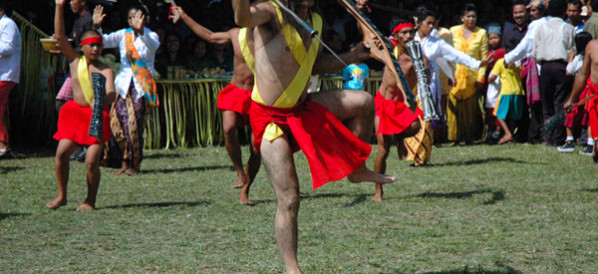 3 Terms
3 TermsHome > Terms > English (EN) > ghettos
ghettos
The term “ghetto,” originating in the Jewish urban enclaves of Europe, was adapted to the urban ethnic communities in the US at the beginning of the twentieth century It found its most lasting association with the residentially segregated inner-city African American neighborhoods. Such neighborhoods first developed in northeastern cities, primarily in the 1920s, following the mass migration of blacks from the South. In the twentieth century the “ghetto” referred almost automatically in speech and media to the most depressed and dangerous elements of black urban life.
These areas have changed themselves over time. Initially new residents in these areas came full of expectations that they would secure industrial employment. Such jobs were not forthcoming, however, except in the period during and immediately after the Second World War. In the 1940s and 1950s, access to these jobs dried up as industries closed or moved out to the suburbs. In addition, whites moved out to these areas, leaving innercity communities economically blighted.
In the 1960s, with urban race riots, a strong sense of nostalgia developed in relation to the old ghetto. New neighborhoods were seen as onedimensional in their poverty having once been viable, vibrant communities—sites of black churches, fraternal orders and other associations. The growing literature on ghettos and ghettoization, therefore, tends to describe a point at which the areas began to develop supposedly dysfunctional characteristics, such as weak families, high levels of poverty violence, prostitution and drugs. The riots themselves damaged the remnants of community that had survived.
Ghettoization was also described as a form of internal colonialism. In conjunction with the Black Power movement, many assumed that these areas needed to be decolonized and that blacks had to gain some self-determination before improvements would occur.
Any potential for this to happen, tied to the War on Poverty, was lost with the economic downturn brought on by the Vietnam War and the OPEC crisis.
A recent tendency has been to accentuate the “culture of poverty” of people in these communities, suggesting, as Nicholas Lemann did in The Promised Land (1991), that such people brought a “sharecropping culture” with them from the rural South. This has tied in with the short-sharp-shock approach to welfare reform, which suggests that it is no longer advisable to give support to members of these ghettoized communities, especially single mothers vilified as “welfare queens.” They must be removed from these environments and the mindsets fostered by the culture there by being forced to work.
Such theories have been countered by scholars like Robin D.G. Kelley, Michael Katz and Adolph Reed.
- Part of Speech: noun
- Synonym(s):
- Blossary:
- Industry/Domain: Culture
- Category: American culture
- Company: Routledge
- Product:
- Acronym-Abbreviation:
Other Languages:
Member comments
Terms in the News
Billy Morgan
Sports; Snowboarding
The British snowboarder Billy Morgan has landed the sport’s first ever 1800 quadruple cork. The rider, who represented Great Britain in the 2014 Winter Olympics in Sochi, was in Livigno, Italy, when he achieved the man-oeuvre. It involves flipping four times, while body also spins with five complete rotations on a sideways or downward-facing axis. The trick ...
Marzieh Afkham
Broadcasting & receiving; News
Marzieh Afkham, who is the country’s first foreign ministry spokeswoman, will head a mission in east Asia, the state news agency reported. It is not clear to which country she will be posted as her appointment has yet to be announced officially. Afkham will only be the second female ambassador Iran has had. Under the last shah’s rule, Mehrangiz Dolatshahi, a ...
Weekly Packet
Language; Online services; Slang; Internet
Weekly Packet or "Paquete Semanal" as it is known in Cuba is a term used by Cubans to describe the information that is gathered from the internet outside of Cuba and saved onto hard drives to be transported into Cuba itself. Weekly Packets are then sold to Cuban's without internet access, allowing them to obtain information just days - and sometimes hours - after it ...
Asian Infrastructure Investment Bank (AIIB)
Banking; Investment banking
The Asian Infrastructure Investment Bank (AIIB) is an international financial institution established to address the need in Asia for infrastructure development. According to the Asian Development Bank, Asia needs $800 billion each year for roads, ports, power plants or other infrastructure projects before 2020. Originally proposed by China in 2013, a signing ...
Spartan
Online services; Internet
Spartan is the codename given to the new Microsoft Windows 10 browser that will replace Microsoft Windows Internet Explorer. The new browser will be built from the ground up and disregard any code from the IE platform. It has a new rendering engine that is built to be compatible with how the web is written today. The name Spartan is named after the ...
Featured Terms
Cakalele dance
Cakalele dance is a traditional, mystical war dance from Northern and Central Maluku, usually performed by about 30 male and female dancers. The males ...
Contributor
Featured blossaries
Browers Terms By Category
- Poker(470)
- Chess(315)
- Bingo(205)
- Consoles(165)
- Computer games(126)
- Gaming accessories(9)
Games(1301) Terms
- Characters(952)
- Fighting games(83)
- Shmups(77)
- General gaming(72)
- MMO(70)
- Rhythm games(62)
Video games(1405) Terms
- Cosmetics(80)
Cosmetics & skin care(80) Terms
- Organic chemistry(2762)
- Toxicology(1415)
- General chemistry(1367)
- Inorganic chemistry(1014)
- Atmospheric chemistry(558)
- Analytical chemistry(530)
Chemistry(8305) Terms
- News(147)
- Radio & TV broadcasting equipment(126)
- TV equipment(9)
- Set top box(6)
- Radios & accessories(5)
- TV antenna(1)



